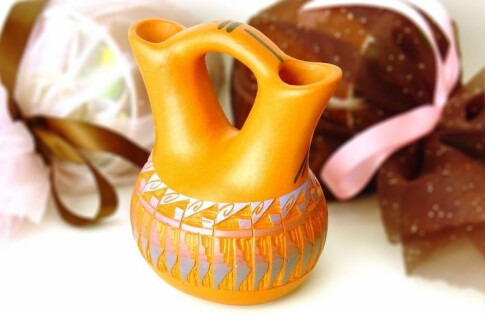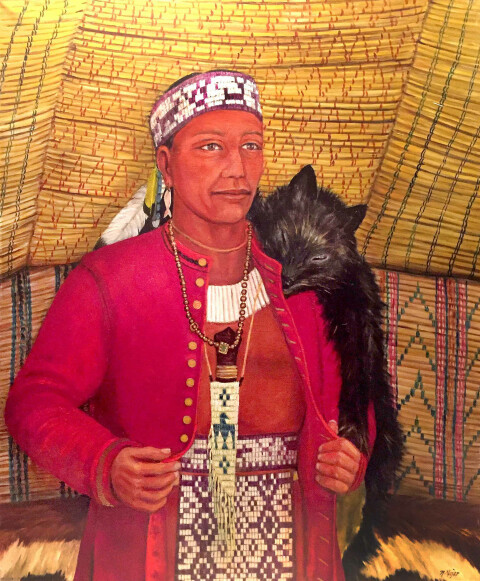A Cranky Piece of Scripture
For Sunday, 11 October 2020: Matthew 22:1-14
Jesus spoke to them in parables, saying: 2 “The kingdom of heaven may be compared to a king who gave a wedding banquet for his son. 3 He sent his slaves to call those who had been invited to the wedding banquet, but they would not come. 4 Again he sent other slaves, saying, ‘Tell those who have been invited: Look, I have prepared my dinner, my oxen and my fat calves have been slaughtered, and everything is ready; come to the wedding banquet.’ 5 But they made light of it and went away, one to his farm, another to his business, 6 while the rest seized his slaves, mistreated them, and killed them. 7 The king was enraged. He sent his troops, destroyed those murderers, and burned their city. 8 Then he said to his slaves, ‘The wedding is ready, but those invited were not worthy. 9 Go therefore into the main streets, and invite everyone you find to the wedding banquet.’ 10 Those slaves went out into the streets and gathered all whom they found, both good and bad; so the wedding hall was filled with guests.
11 “But when the king came in to see the guests, he noticed a man there who was not wearing a wedding robe, 12 and he said to him, ‘Friend, how did you get in here without a wedding robe?’ And he was speechless. 13 Then the king said to the attendants, ‘Bind him hand and foot, and throw him into the outer darkness, where there will be weeping and gnashing of teeth.’ 14 For many are called, but few are chosen.”

Wait, what? This is not the kind of story we expect to hear from Jesus. It seems a king invited guests to a wedding feast for his son, but those so summoned refused to attend and even treated the king’s messengers with contempt and violence. In return, the enraged king visited the full fury of his wrath on them and invited anyone he could find to replace them, guaranteeing that the wedding hall would be filled with guests. In an unexpected turn, however, one of the substitute invitees is thrown out because he is not properly clothed. What gives?
Minnesota humorist Garrison Keillor one time referred to this passage as a rather “cranky piece of scripture.” Cranky or not, Jesus told stories for the purpose of imparting the wisdom of God to his hearers. Sometimes we need to dig deep, however, to uncover the treasure buried therein. This is one such story. For example, what might the wedding robe, the lack of which got the guest excluded from the banquet, represent?
St. Augustine in the fourth century preached that the wedding garment which features so prominently in the parable is “love.” Some Eastern Orthodox Christians understand the wedding robe to be the white baptismal garment presented to the newly baptized. Still others understand the wedding robe to be Christ himself, “for all of you who were baptized into Christ have clothed yourselves with Christ – have put on Christ” (Galatians 3:23). I am wondering if the lack of the appropriate wedding garment symbolizes our indifference to the graciousness of God and apathy to the needs of the poor. Perhaps the one who was cast out to “outer darkness” was simply lazy about his commitment to the kingdom of God.
The king is hosting a wedding banquet. While wedding customs differ from culture to culture and tribe to tribe, one custom common among some Native Americans is that of the Wedding Vase. A clay vessel with two spouts is filled with water from which the bride and the groom drink separately and then together, symbolizing both their individual uniqueness and their strength and unity as a couple. The clay of the vase reminds me that we are formed from the earth by a good Creator (Genesis 2:7). Since water is essential for the life of every creature and plant, its ceremonial drinking calls to mind our physical birth from our mothers and for Christians our spiritual birth through the waters of baptism.
We have been invited by the king to a wedding feast. “‘For this reason a man will leave his father and mother and be joined to his wife, and the two will become one flesh.’ This is a great mystery, and I am applying it to Christ and the church” (Ephesians 5:31-32). God wants the banquet hall to be filled with guests who will respond in honor of his son. All are invited. How will you reply? Will you attend? What will you be wearing?


